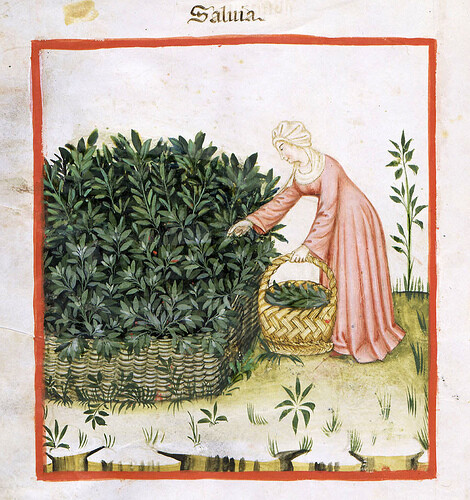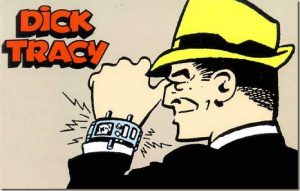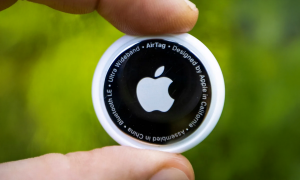
This is not a new debate. In fact, there is much discussion about reducing the duration of patents or that the world turns to the use of generic drugs.
It occurred to me that the best way to illustrate the problem is with a fictional story, but one that is not too far from a probable reality.
Imagine that one day an aboriginal discovers a new plant in the forest, baptizes it as a chachakuma (to name it) and goes to his hut. The next day he makes an infusion with this herb, gives it to his son with dengue, and the disease disappears suddenly. The Aboriginal has just accidentally discovered AN EFFECTIVE CURE. That knowledge is transmitted to his son and this in turn to his descendants and so on, until said ancestral knowledge reaches our times. Very few know of the existence of this medicinal plant because nobody is interested in the least to put advertisements in the newspaper, or to carry out studies so that they appear in the magazine Science.
So far many will think ... it would be very good for everyone to know about this herb!

Nature cannot be patented
Let's imagine that the information on this natural medicine reaches one of the large pharmaceutical multinationals. Ufff ... some will say, finally everyone will know about this miraculous medicinal plant!
The sad reality, however, is that chachakuma does not mean any interesting business for the BIG PHARMAS. Why? BECAUSE YOU CANNOT PATENT A PLANT!
In other words, the business of pharmaceutical companies is to try to take the original herb, find the component that causes the dengue cure, SYNTHESIZE said compound (that is, create it artificially in the laboratory), then PATENT THE PROCEDURE FOR OBTAINING THE COMPOUND SYNTHETIC and now if ... INVEST MILLIONS OF DOLLARS IN MARKETING AND SELL THE 500mg CHACHACETAMOL PILLS !! Let the millions come!
The millions spent on marketing don't really matter much because they will surely be passed on to the cost of the pill to the end user. If the drug is needed and urgently needed, it will be purchased at any price. Harsh truth.
It is important to emphasize that since a PATENT was obtained, the company will not have competition for a very good time. In other words, during this time you will be able to spend a large part of your budget on marketing instead of innovation. Users will have no choice but to purchase it to heal. Buy it at whatever price.
Of course, it is worth mentioning that this super marketing budget will make the 500mg CHACHACETAMOL much more accepted by society than the \ ”filthy \” ancestral chachakuma, which by the way, almost nobody knows.
The moral of this fictional story will be drawn by the reader.
Martin Shkreli: The most hated man in the world.
There are many cases where pharmaceutical patents have been a problem for social health. I invite you to Google for the phrase "the most hated man in the world" and you will probably not come across Hitler but rather with the story of Martin Shkreli, an investor who bought pharmaceutical patents who put some drugs out of reach of those most in need. That he made money, yeah. At the end of the day the United States Government could do nothing against the patent system, but at least it put Shkreli behind bars, which by the way, does not prevent him from continuing to earn money.

Should we review pharmaceutical patents?
I must say that I am a staunch admirer of scientific research. I consider many men of science heroes for their dedication and contribution to society. However, I very much doubt that the patent model (at least in the way it is currently conceived) is encouraging technological innovation and scientific development, quite the contrary. About the latter, I leave you with this other article that talks about precisely that.
http://david.lasindias.com/un-mundo-sin-patentes-la-industria-farmaceutica/
For those who do not want to read everything, I leave you with an interesting paragraph:
Marketing spending is a high fixed cost that, like research, makes it difficult for new companies to enter the sector and facilitates monopoly. Thus, marketing is often an area of collaboration and strategic alliances between pharmaceutical companies. In fact, marketing expenses are increasing. In 2000, innovative pharmaceutical companies in the United States employed 81% more staff in marketing than in research and development (R&D). And this is a growing proportion, since in 1995 the staff dedicated to marketing was only 12% greater than the number employed in R&D, which has even decreased slightly since then (Sager and Socolar, 2001).
And here another interesting link:
Gene Patents Are Sabotaging the Future of Medicine
The pharmaceutical patent dilemma in the COVID19 pandemic
Some controversy has recently been sparked around the release of patents behind vaccines for Covid19, especially after the crisis in India, where a record number of deaths was reached. The paradox is that India is also the first producer of vaccines for international companies, but it can have them because it is not a generic recipe.






